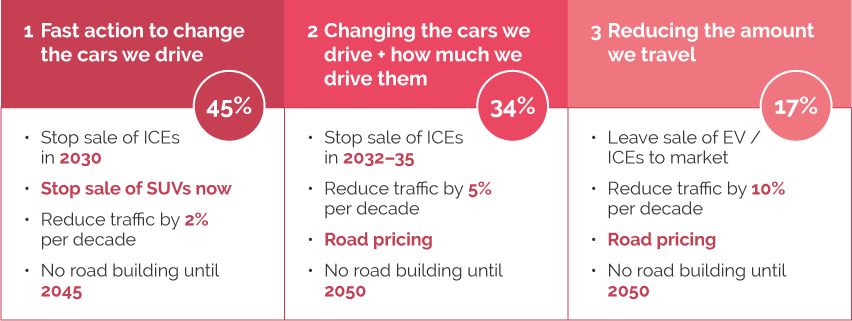Jillian Anable
This inquiry cites recommendations from the UK Climate Assembly on changes to the way we travel and claims that that road pricing was found to be unacceptable.
CREDS suggests that the inquiry’s representation of the Assembly recommendations on road pricing is too selective; and it fails to embrace the wider package of measures and trade-offs that the Assembly considered and endorsed to mean that road pricing would indeed be less acceptable if other strong measures (such as an immediate ban on the sale of SUVs) were implemented instead.
Evidence from road pricing schemes strongly suggests that consideration of a package of measures could enhance public acceptability, e.g. transparency of net impacts, co-benefits, fairness. Furthermore, real-world evidence shows that acceptance of road pricing tends to improve once charging schemes have been implemented.

Full details of the call: Opens in a new tabZero emission vehicles and road pricing
The three options considered and the Assembly responses: 1. Fast action to change the cars we drive: Stop sale of ICEs in 2030, Stop sale of SUVs now, Reduce traffic by 2% per decade and No road building until 2045 – 45% of respondents. 2. Changing the cars we drive + how much we drive them: Stop sale of ICEs in 2032–35, Reduce traffic by 5% per decade, Road pricing and No road building until 2050 – 34% of respondents. 3. Reducing the amount we travel: Leave sale of EV / ICEs to market, Reduce traffic by 10% per decade, Road pricing and No road building until 2050 – 17% of respondents.
Publication details
Anable, J. 2021. Call for evidence: House of Commons Transport Committee inquiry on zero emissions vehicles and road pricing. CREDS Consultation response 021 | February 2021.
Banner photo credit: Alireza Attari on Unsplash
